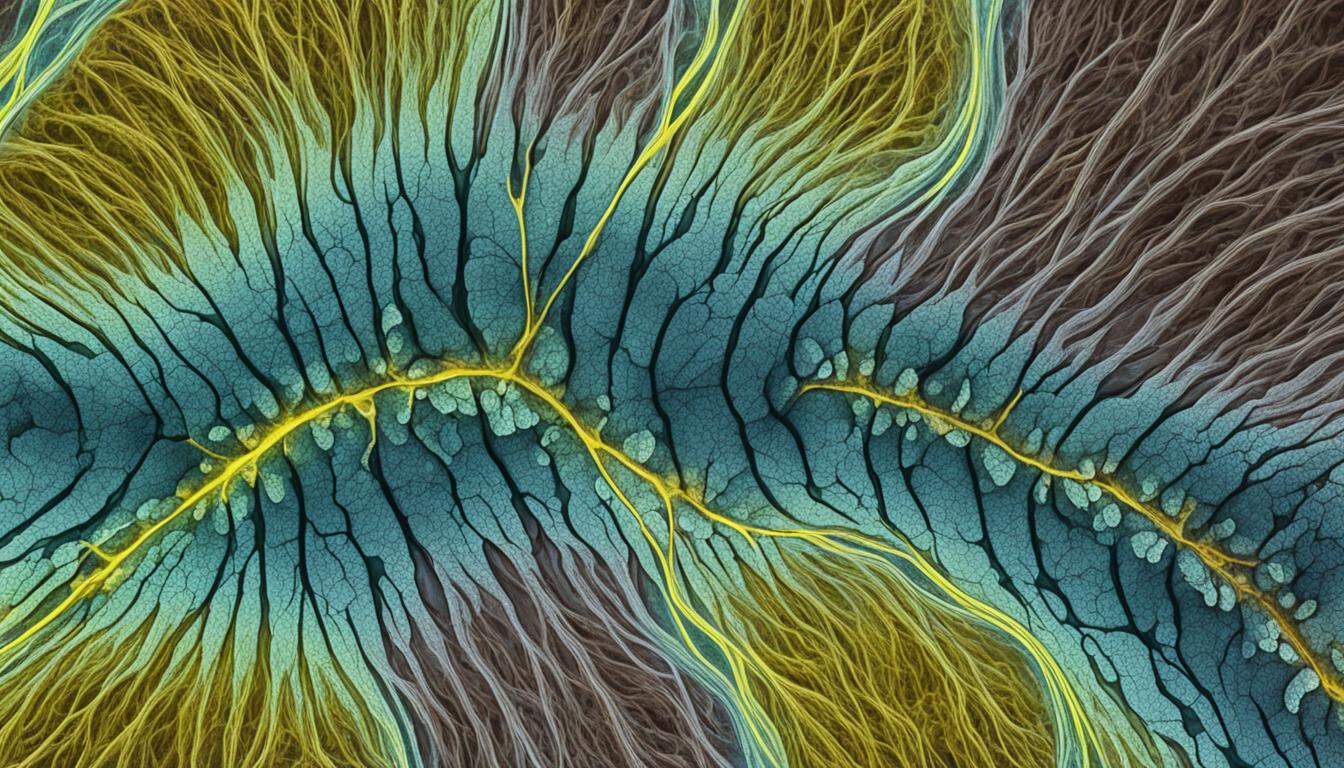Kidney stones are hard formations in the kidneys. Doctors call them renal lithiasis. These stones can vary in size and what they’re made of. For instance, they might be calcium oxalate, calcium phosphate, uric acid, or struvite stones.
Key Takeaways:
- Renal lithiasis, or kidney stones, are hard deposits that form in the kidneys.
- Kidney stones can vary in size and composition.
- The most common types of kidney stones include calcium oxalate, calcium phosphate, uric acid, and struvite stones.
Symptoms and Complications of Renal Lithiasis
Renal lithiasis, also known as kidney stones, brings several symptoms and complications. These depend on the stone’s size and where it is. Knowing these symptoms early can help with fast diagnosis and the right care.
Symptoms of Renal Lithiasis:
The main sign of renal lithiasis is extreme pain. It usually starts in the lower back or belly and can move to the groin. This pain feels like a sharp stab and gets worse with activity. It often keeps people from staying still.
Other signs include:
- Blood in the urine (hematuria)
- Frequent urination
- Persistent urinary tract infections
- Cloudy or foul-smelling urine
- Nausea or vomiting
Keep in mind, symptoms’ strength and how often they show can differ. Some get kidney stones and have lots of pain times. Others might not feel any pain until a check-up finds the stones.
Complications of Renal Lithiasis:
Kidney stones can be very painful and lead to issues if not treated well or ignored. These complications are:
- Kidney damage: Big stones or stones staying in the kidneys long can block the urinary path. This might damage the kidney or cut its function.
- Urinary tract infections: Having kidney stones can raise risk for infections. This might bring a fever, chills, and pain or burning when peeing.
- Obstruction and hydronephrosis: Stones can block the ureters, which are tubes leading urine from kidneys to bladder. This blockage can make the kidney swell from too much urine, called hydronephrosis.
- Kidney stones in the bladder: Sometimes, stones move from the kidneys to the bladder. They can cause pain and raise infection risk there.
To keep complications at bay and manage renal lithiasis well, a doctor’s advice is key. They can give the right tests and treatments.
| Symptom | Description |
|---|---|
| Intense pain in the lower back or abdomen | Sharp, stabbing sensation; may radiate to the groin area |
| Blood in the urine (hematuria) | Visible blood in the urine; may look pink, red, or brown |
| Frequent urination | Feeling like you need to urinate a lot more often |
| Persistent urinary tract infections | Gets UTIs often because of kidney stones |
| Cloudy or foul-smelling urine | Urine looks cloudy or smells bad |
| Nausea or vomiting | Feeling unwell in the stomach, even leading to throwing up |
Prevention and Management of Renal Lithiasis
Preventing kidney stones involves a few key strategies. Firstly, drink plenty of water every day. This keeps your urine diluted, making it harder for stones to form.
Eating right is also essential to lower your stone risk. Avoid too much sodium and too many high-protein animal foods. Be careful with foods high in oxalate, like spinach and beets, as they can cause calcium stones.
Try to cut down on sugary drinks, too. They increase uric acid and calcium in your urine, making stones more likely to form.
Following these tips can help you manage and lower your kidney stone risk. For tailored advice, always talk to a doctor. They can give recommendations that fit your personal situation.
FAQ
Q: What are the symptoms of renal lithiasis?
A: Are you wondering about symptoms of renal lithiasis? Intense pain in the lower back or abdomen is common. You might see blood in the urine or have to urinate often.
You could also get cloudy or bad-smelling urine. Feeling sick to your stomach or vomiting are signs too.
Q: What are the most common types of kidney stones?
A: Types of kidney stones vary. Some are calcium oxalate stones, others are calcium phosphate. Uric acid and struvite stones are also common.
Q: How can I prevent renal lithiasis?
A: Hydration is key to preventing kidney stones. Drink plenty of water. Also, eat a diet that’s low in sodium, animal proteins, and oxalates.
Sugary drinks should be limited. This can help keep kidney stones away.
Q: How is renal lithiasis treated?
A: Kidney stones can be treated several ways. There’s medication to help pass them. ESWL, or shock wave therapy, is another method.
Ureteroscopy and percutaneous nephrolithotomy are surgical options.
Q: Can renal lithiasis lead to complications?
A: Kidney stones bring risks of infection and kidney harm. They can even block the urinary tract. Yes, complications are possible.

